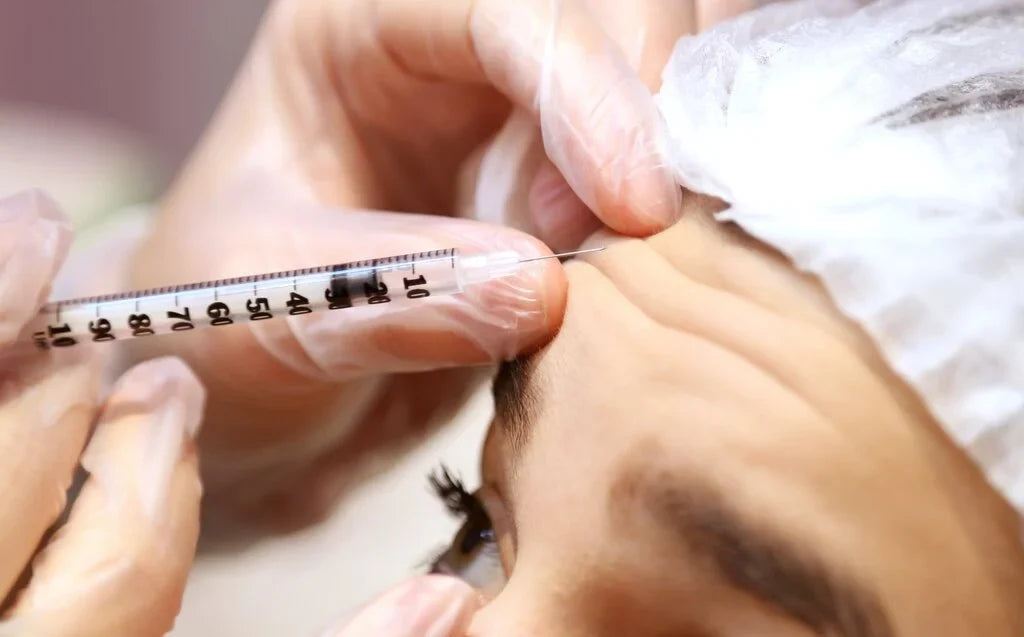If your eyes are ultra sensitive to sunlight, you may have photophobia. The human eye is sensitive to sunlight to help us prevent damage from looking at the sun. But for some people, even getting too close to a window can be excruciating – like stepping outside during the middle of the day after being in a dark movie theater.
Photophobia is a chronic medical condition where sunlight or other types of light actually hurt. It can cause headaches and trigger migraine attacks, eye dryness, burning, excessive tearing, even nausea. In this article, we’ll talk about photophobia-related sunlight sensitivity and what you can do about it.
Possible Reasons Why Your Eyes Are Sensitive to Sunlight
Photophobia is one cause of ultra light sensitivity, but it’s not the only one. Let’s go a little more in depth about photophobia, and then discuss what else might be causing your sunlight sensitivity.
Acute photophobia can be caused by meningitis, lupus, eye surgery, eye infection, eye abrasion, and much more. If this applies to you, you probably know the cause of your discomfort. In some cases, photophobia may arise after an injury, surgery or other trauma, but stay with you long-term and become a chronic condition.
On the other hand, if your extreme sensitivity to sunlight is ongoing, chronic photophobia may be to blame. It becomes part of everyday life, and the severity of each case will vary from others.
Chronic photophobia could be caused by several underlying issues.
1. Lupus
Ongoing or chronic photophobia or sunlight sensitivity may also be related to certain medical conditions, such as lupus. If you have lupus, your sensitivity to the sun could also manifest itself via visual floaters, dry eye, retinal complications, lesions, or changes to the muscles surrounding the eye.
2. Meningitis
Another medical condition that may be related to your sunlight sensitivity is meningitis. Meningitis is known to cause swelling in the brain, along with headaches. Bright light like sunshine can make those headaches even worse.
3. Multiple Sclerosis
Multiple sclerosis (MS) can cause damage to the optic nerve or other parts of the brain that process visual information. This can lead to various visual symptoms, including sensitivity to light or photophobia. Additionally, inflammation and demyelination in the central nervous system can cause increased neural activity and altered sensory processing, resulting in increased sensitivity to light.
4. Encephalitis
Encephalitis is an inflammation of the brain which can cause several neurological symptoms. Photophobia may be a result of encephalitis, because of the inflammation and irritation of the brain and its surrounding structures.
5. Anxiety or Depression
If you deal with anxiety, depression, or panic disorders, sunlight sensitivity could be a related issue for you. People with these psychiatric challenges may be more sensitive to bright light than others.
6. Certain Medications
While not everyone will experience it, there are some medications that may cause light sensitivity as a side effect. These include some in the following drug categories:
- Antibiotics
- Antihistamines
- Antidepressants
- Antipsychotics
- Diuretics
- NSAIDs
- Retinoids
If you experience any visual changes or unexpected side effects while taking any medication, it’s important to talk to your doctor.
7. Injury to the Head or Face
A concussion usually occurs as the result of an injury to the head or face. One of the possible symptoms of concussion or post-concussion syndrome is acute photophobia, including eye sensitivity to the sun.
By definition, a concussion is a type of mild traumatic brain injury or TBI. TBIs of any type may cause short or longer-term sensitivity to both artificial and natural light, along with other symptoms.
8. Eye Surgery
Some people experience short-term or acute sensitivity to sunlight or other types of light after having eye surgery, such as LASIK or cataract surgery. For a few people, light sensitivity after eye surgery may become chronic.
9. Eye Infection or Abrasion
If you have a short or long-term eye disease, such as uveitis, iritis or keratitis you may experience extreme sensitivity to light. Corneal abrasions or scratches are also painful, and may result in acute sensitivity to the sunshine or artificial light.
10. Inadequate Eye Protection
The good news is that being sensitive to the sunlight doesn’t necessarily mean you have photophobia. It could be that you just aren’t giving your eyes sufficient protection, which is an easy fix. But if you persist in leaving your eyes vulnerable to the bright sunshine, it could lead to damage.
In fact, did you know your eyes can actually get sunburned? When this happens, it’s called photokeratitis. It’s usually related to excessive UV light exposure, and may result in pain, redness, blurred vision, headache, twitching, seeing halos, and more.
11. Dark Adaptation
If you’ve been wearing sunglasses indoors due to extreme light sensitivity, or tend to retreat into the darkness with frequent migraine attacks, you may have become more sensitive to sunlight over time. This is called dark adapting your eyes, and it’s the reason why light sensitive people should wear precision-tinted glasses for photophobia rather than sunglasses.
Light sensitivity glasses by Axon Optics only block the types of light most likely to trigger symptoms (such as a migraine attack) for people with photophobia, rather than blocking all wavelengths the way sunglasses do. This can minimize discomfort without dark adaptation.
12. Lighter Colored Eyes
If you have blue eyes or another color of light eyes, some believe you could be more likely to be sensitive to sunlight. The idea is that lighter colored eyes are less able to block the effects of the sunshine, simply because there is less pigmentation (think of your iris like sunglasses). Having less macular pigment is thought to allow more of the damaging wavelengths of UV light to reach your retina.
However, there is conflicting evidence on whether or not light colored eyes, like blue, are more light sensitive. But either way, you’re always safer to protect those baby blues.
Risks of Sunlight Overexposure
As much as we all need and appreciate sunlight, its UV can cause some serious issues for your eyes if you don’t protect them. These include but are not limited to:
- Cataracts: Cataracts are a common cause of blindness, and excessive UV exposure is related to their formation.
- Cancers: Too much sunlight exposure can lead to increased risk of several types of eyelid skin cancers.
- Macular degeneration: The sun’s radiation can damage your retina and macula, resulting in vision loss.
Especially if your sensitivity to sunlight is extreme, you’ll want to have some coping strategies handy. Here are a few ideas.
What to Do With Eyes Sensitive to Sunlight
Wear High-Quality Sunglasses
It seems obvious, but that’s because it’s so easy. If you use the right tools, being sensitive to sunshine doesn’t mean you have to stay inside. Protect your eyes with some simple tools like a wide-brimmed hat or umbrella. You should also look for protective sunglasses that offer:
- 100% protection from UVA and UVB rays
- Larger lenses for better eye coverage
- Wrap-around frames for side protection
- Non-transparent lenses and thicker frames
- Special protection from snow or water reflection (like specialized snow goggles)
Use Axon Optics Light Sensitivity Glasses
Axon Optics with Avulux lenses can be worn indoors or out. Combined with a healthy lifestyle, these lenses may help people sensitive to sunlight or other types of light manage the impact of light.
The glasses are stylish, easy to put on and carry with you, and the Avulux lenses provide a patented, multi-band precision optical filter. In fact, they’re the only clinically proven lens for people with light sensitivity and migraine. There are no known side effects.
Avoid Intentional Sun Exposure
Many of us enjoy a nice tan. But aside from the effects on your skin, intentionally soaking in the rays can have unintended consequences for your sun-sensitive eyes. Enjoy the sunshine responsibly, but avoid the concentrated UV exposure of tanning booths or sunlamps.
Have Regular Eye Exams
Light sensitive people should be in regular contact with their eye doctor and receive comprehensive eye exams as often as their doctor recommends. This means allowing your Doctor of Optometry or Ophthalmologist to get a better look than you’ll receive in a vision screening, which isn’t the same as an eye exam. You may need dilated exams where the doctor can examine your retina for any signs of damage.
Source: Tekatas A, Mungen B. Migraine headache triggered specifically by sunlight: report of 16 cases. Eur Neurol 2013;70:263–266. 10.1159/000354165
Source: Bossini L, Martinucci M, Paolini K, Castrogiovanni P. Panic-agoraphobic spectrum and light sensitivity in a general population sample in Italy. Can J Psychiatry. 2005 Jan;50(1):39-45.





